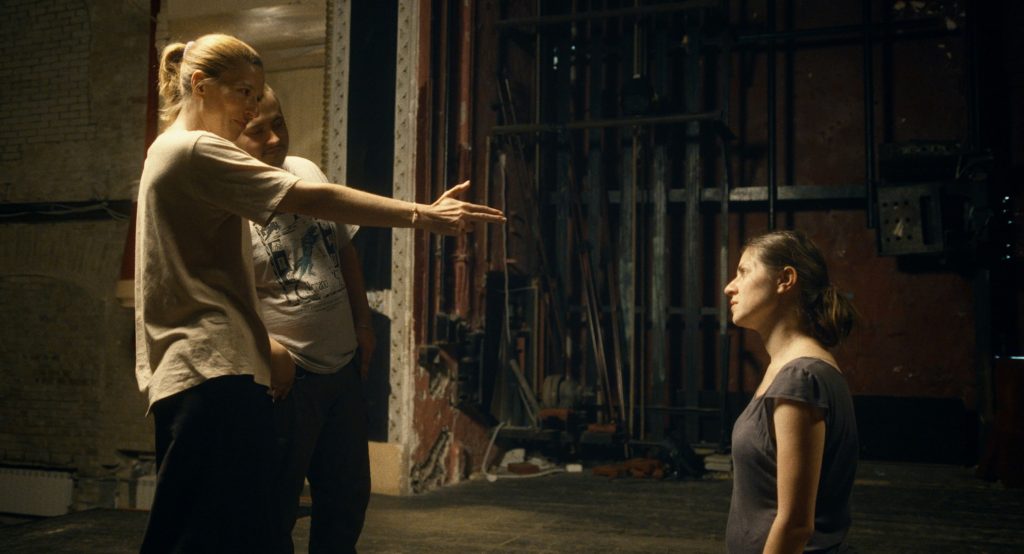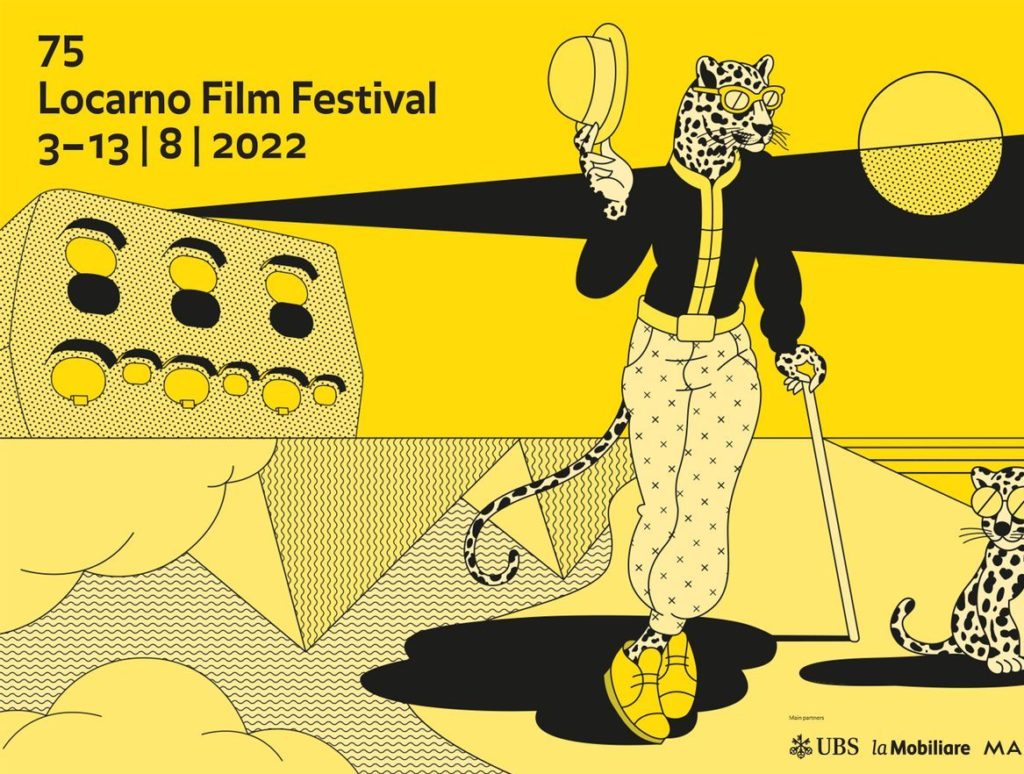Locarno review: The Hamlet Syndrome (2022)
Locarno Film Festival
Semaine de la Critique

It is hard to comment on anything related to the Russian aggression on Ukraine from the perspective of someone who is not directly afflicted by the war attrocities, and who is unable to comprehend to what kind of extent the brutal military actions have damaged one democratic country that for a long time was colonialized by the different regimes of today’s attacker. At the same time, it is easy to sympathise with those who know how that feels, to prick up one’s ears and open the eyes. Some stories sound familiar (the author of these lines lived through the war initiated by the country of her origin), and the guilt of not doing enough to put madness to a halt is very close to home.
From the opening title cards of Elwira Niewiera & Piotr Rosolowski’s documentary The Hamlet Syndrome, we know that a few months prior to Russia’s devastating full-scale invasion of Ukraine, five young people participated in a unique stage production that ‘attempted to join their war experiences to Hamlet’s dilemma.’ “To be or not to be, that is the question” is the starting point of a long process that involves discussions, proper acting rehearsals and reactions to specific terms and situations pulled out of actors’ memory. The director of the eponymous theatre play Rosa Sarkisian was appointed by Niewiera & Roslowsky to stage the piece based on personal experiences of the casted actors, all of them marked by the first huge military aggression on Ukraine in 2015. All stemming from the Maidan generation which didn’t have the commodity of a care-free existence for a number of years, they were given a certain freedom to interact with the concept for the unscripted play, aided to put it into a solid form by Sarkisian.

The rehearsals could be read as deeply emotional psycho-drama sessions, as every actor recreates their traumas from the past. It is not an easy dialogue considering the different type of malice each one was confronted with. Three out of them were directly involved in the war either as fighters (Katya and Slavik, who was even held in captivity by the separatists), and one as a medic (Roman). Oxana and Rodion had experienced the conflict in other, but not less painful ways. Still, regarding their different experiences and views on the current situation, and even the past, finding the way to each other turns out to be more difficult than expected.
Niewiera & Rosolowski are also with them outside of the theatre, capturing touching moments of their attempts to speak about traumas with closest family members or partners. Some of those conversations didn’t happen before Piotr Rosolowski’s camera started to roll, and to get there was a matter of establishing the sense of mutual confidence between the ‘extras’ and the film team. That meant investing a lot of time in tying bonds, and engaging in small, mundane practices together.
The Hamlet Syndrome had its international premiere in Locarno’s prestigeous Semaine de la Critique selection after it gathered huge success at Krakow Fim Festival, where it bagged several awards including the one for The Best Polish Film.
Elwira Niewiera & Piotr Rosolowski have been collaborating together ever since they met in Berlin during the shooting of Bartosz Konopka’s short documentary Mauerhase (Rabbit à la Berlin) that was nominated for Oscar in 2010. Since then, they’ve directed three documentaries together starting with Domino Effect (2014) which won a number of awards, including the Golden Dove at DOK Leipzig and the Golden Horn in Krakow. Their second documentary The Prince and the Dybbuk (2017) scooped The Lion for Best Documentary in Venice.
Technically speaking, The Hamlet Syndrome is the product of a well-oiled collaboration between the co-directors who firmly hold their positions as passive- (Rosolowski) and active observers (Niewiera). The camera movement is mostly fluid, paced in tact with the movement of the documentary’s protagonists.
It is heartbreaking to think about what has happened since the film wrapped in. Upon the full- scale invasion of Ukraine, Slavik, and Roman re-joined the ranks of the Ukrainian army, Roman became involved as the tailor of military uniforms, and Oxana Cherkashyna (the lead actress from Maryna Er Gorbach’s multiple-award winning war drama Klondike) organizes humanitarian aid from Warsaw, where she actively works as a theatre actress.
Original Title: Hamlet-Effekt
Country: Poland/ Germany
Runtime: 85′
Year: 2022
Production Companies: BALAPOLIS sp.zo.o., Kundschafter Filmproduktion GmbH
Written/ Directed by: Elwira Niewiera & Piotr Rosolowski
Cinematographer: Piotr Rosolowski
Editor: Agata Cierniak
Sound Recordists: Marcin Lenarczyk, Jaroslaw Sadowski, Andrij Nidzelskiy, Artem Yevtushenko, Mikhailo Zakutsky
Original Music: John Gürtler & Jan Miserre
Sound Design: Jonathan Schorr
Additional Musical Sound Design: John Gürtler
Producers: Magdalena Kaminska, Agata Szymanska, Andreas Banz, Matthias Miegel, Robert Thalheim
Sound Editing: Marcin Lenarczyk, Igor Klaczynski, Iza Dzieszuk
Sound Mix: Uwe Bossenz
Foley Artist: Martin Langen
With: Rosa Sarkisian, Myroslav Gavianets, Alina Kotlyarova, Maryna Manievska, Igor Sereda,
















